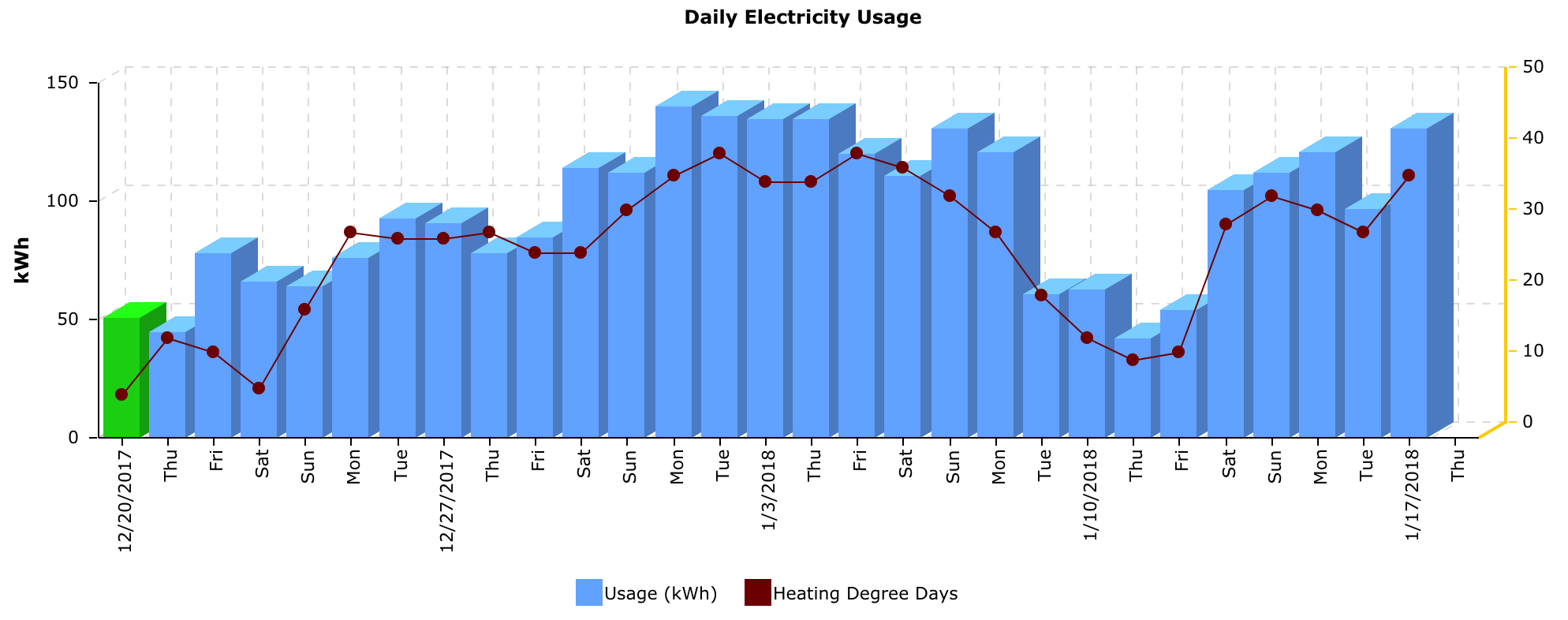 |
This typical graph of a customer-owner's electricity use shows that as the need for heating increases, so does the amount of energy used. The red line shows heating requirements (degree days) and the blue bars show energy used. |
MONROE, Ga. – Frigid air from waves of Arctic cold fronts will cause consumers to take notice when they receive January energy bills.
The average high temperature for the first 18 days of the month was only 45 degrees, about 10 degrees cooler than normal. The lowest temperature during the same period was 14 degrees, with 12 of 18 mornings being below 26 degrees. The average low is 31.
That means it took a lot of heat to stay warm. The first 18 days of January required more than twice as much heating as the same time period in 2017.
That also means heating systems ran twice as much, sometimes for hours on end, causing consumers’ energy bills to increase significantly. That’s true no matter what fuel source – electricity, natural gas or LP gas – the heating system uses.
“Consumers should not be surprised when their energy bill covering January is up significantly,” said Greg Brooks, Walton EMC spokesperson. “Heating costs may be double of what they were last year.”
For electricity, heating can be as much as 60 percent of the total bill. For natural and LP gas, that figure could rise to as much as 80 to 100 percent.
Brooks offers these tips to take a bite out of the Arctic chill:
- Make sure your home is properly insulated and weather stripped. The most cost-effective place to add more insulation is the attic. Caulking gaps in the outside of your home is also an economical energy fix.
- Open blinds and drapes facing south during the day to take advantage of solar heating.
- Keep exterior doors closed as much as possible.
- Wear heavier clothing indoors, like a jogging suit or thermal underwear and socks. That allows you to keep the thermostat at a lower temperature. Every degree lower can save three to five percent in heating costs.
- Help your heating system run more efficiently. Change filters regularly and don’t block vents with furniture or rugs.
- Sign up for Walton EMC’s and Walton Gas’s levelized billing program. This program shifts some of the cost of higher months to lower months, making your bill a more even amount year-round.
- Get detailed information on daily energy use by using the resources at mywaltonemc.com.
Walton EMC is a customer-owned electric cooperative serving 127,000 accounts in 10 Northeast Georgia counties between Atlanta and Athens. Walton Gas is a wholly-owned subsidiary of Walton EMC serving accounts statewide.
# # #